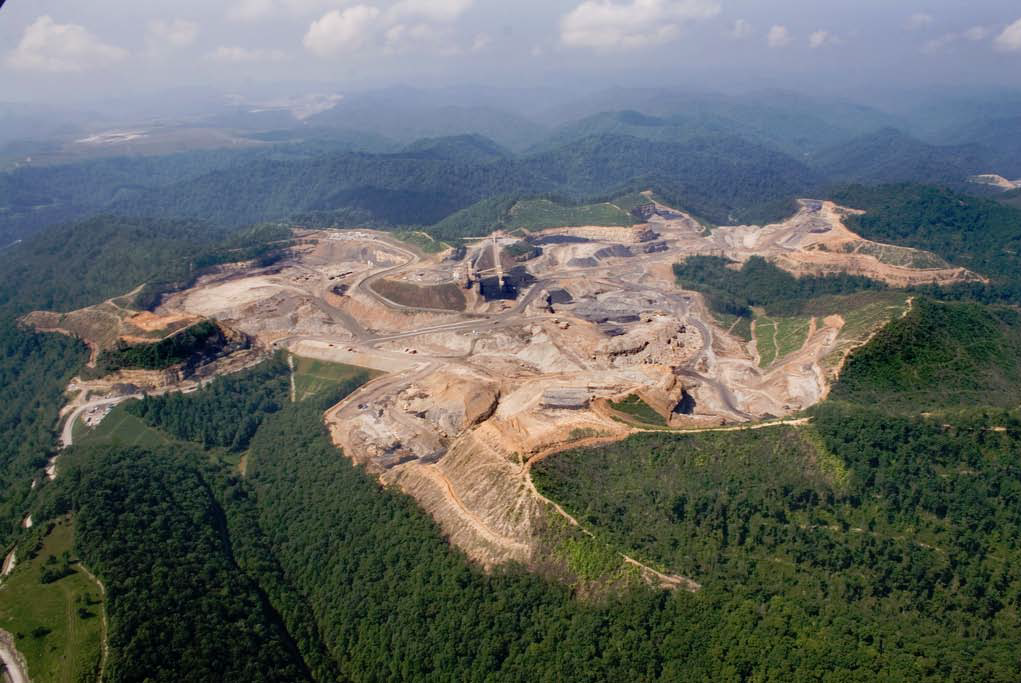Back to the buffer zone: Congress moves to reject Obama administration’s ‘stream protection’ rule
February 2, 2017 by Ken Ward Jr.Later today, the U.S. Senate will almost certainly vote to approve a resolution to block a last-minute Obama administration rule aimed at replacing the long-controversial stream “buffer zone” rule. The House passed the resolution yesterday afternoon. Once that resolution makes its way to the White House, President Trump will sign it.
Presumably, it won’t take long after that before all of the coal miners in West Virginia who have lost their jobs over the last few years will get called back to work.
Well, at least that is what coalfield political leaders, industry officials — and now the most powerful man on the planet — would have residents of places like Boone and Logan counties in West Virginia believe.
Here’s Rep. David McKinley, R-W.Va., during yesterday’s House floor debate on the Office of Surface Mining Reclamation and Enforcement rule:
Simply put, it was President Obama’s attempt to drive a final nail into the coffin of an industry that made America great. Look, enough is enough. This war on coal has to come to a stop, and I think this election set the tone for that. Now that we finally have a President who understands the painful impact of excessive and unnecessary regulations,
It is time to give the families of the coalfields all across America a chance to get relief from the unelected bureaucrats in Washington.
Here’s Rep. Evan Jenkins, R-W.Va., during that same floor debate:
Stopping this rule matters to West Virginians, to our miners, to our families, to our consumers. We produce 95 percent of our electricity from coal. It is reliable and it is affordable … My State can’t afford to lose any more jobs, and I know that goes for other coal States.
It fell to Rep. Raul Grijalva, a Democrat from Arizona, to bring some reality into the discussion:
… If there is a war on coal, it is being led by the natural gas industry who produces a cheaper product at a lower cost. And if there is any trouble that coal is in, it is directly attributed to the free market and that competition.

A Democrat from Kentucky, Rep. John Yarmuth, reminded House members that mountaintop removal has real consequences. None of the Republicans wanted to take him up on his challenge that they drink some water from a well that was contaminated by a Pike County mining operation (see video above). Earlier in the day, Yarmuth had reintroduced his Appalachian Community Health Emergency Act, legislation that would place a moratorium on all new mountaintop coal removal mining permits while federal officials examine health consequences to surrounding communities.
Let’s be clear, though. In West Virginia, selling the same sort of coal con that President Trump has pushed is a bipartisan effort. When the Senate votes to block this OSMRE rule, Democratic Sen. Joe Manchin will be right there with Republican Shelley Moore Capito to support that effort. In a statement issued yesterday, Sen. Manchin had this to say for himself:
I have been committed to pursuing any legislation to … protect our coal mining communities and economies and that is why I am glad to introduce this resolution of disapproval to undo this harmful, overreaching regulation. I remain unconvinced that this jobs-killing regulation is necessary or substantiated, particularly when you consider state and federal regulations already in place. The consequences of this regulation will have far-reaching impacts on the future of coal mining and, therefore, will only serve to hinder development of affordable reliable energy.
And West Virginia Gov. Jim Justice, who ran as a Democrat, issued his own press release to make sure everyone knew he was on board with what Congress was doing.
This rule would further cripple coal mining in West Virginia and in other states across the country and is a drastic overreach by this regulatory agency.
West Virginia has been harmed significantly in recent years due to burdensome rules and regulations imposed on the mining industry at the federal level and I ask you today to help us begin the process of healing our economy and putting our miners back to work by rejecting this rule.
Make sure to read that carefully. Gov. Justice isn’t just saying that getting rid of this OSMRE rule would help stop any further erosion of coal jobs — he’s saying that rejecting protections OSMRE wants to provide for streams will “put our miners back to work.”
So perhaps it’s a good time to revisit what the late U.S. District Judge Charles H. Haden II had to say so many years ago when citizens groups dared to suggest that federal and state regulators should actually enforce the buffer zone rule as it applies to giant valley fills which mountaintop removal mining has deployed, burying hundreds and hundreds of miles of Appalachian streams:
When valley fills are permitted in intermittent and perennial streams, they destroy those stream segments. The normal flow and gradient of the stream is now buried under millions of cubic yards of excess spoil waste material, an extremely adverse effect. If there are fish, they cannot migrate. If there is any life form that cannot acclimate to life deep in a rubble pile, it is eliminated. No effect on related environmental values is more adverse than obliteration. Under a valley fill, the water quantity of the stream becomes zero. Because there is no stream, there is no water quality.

 Subscribe to the Coal Tattoo
Subscribe to the Coal Tattoo
